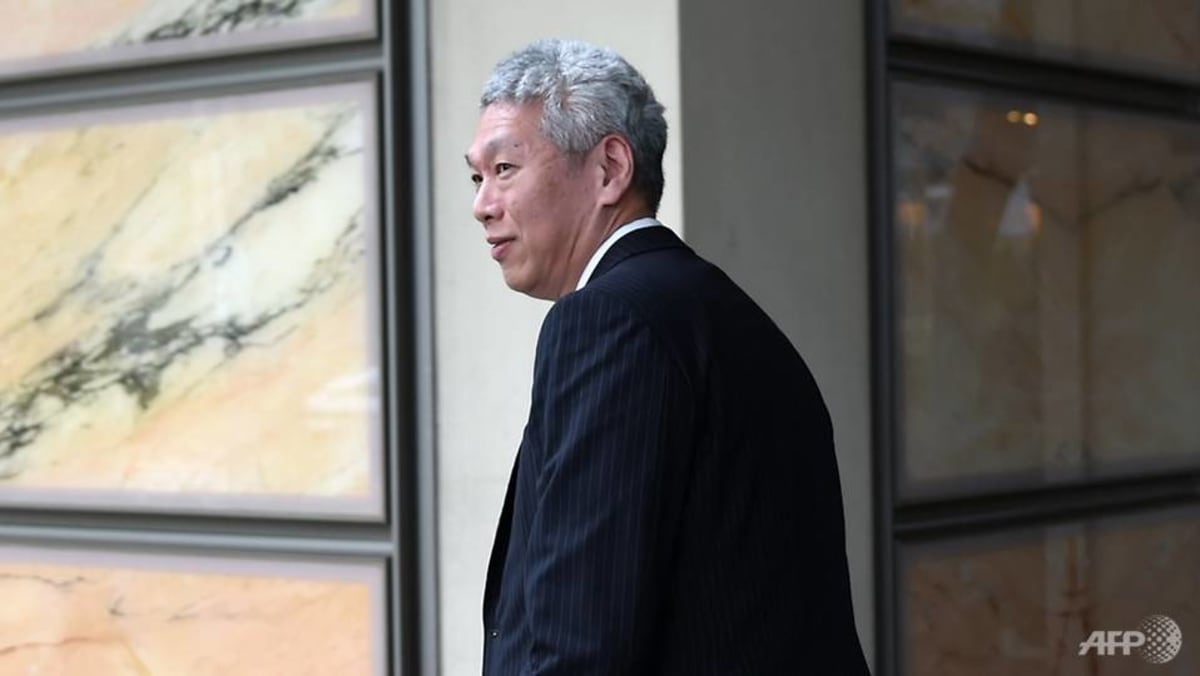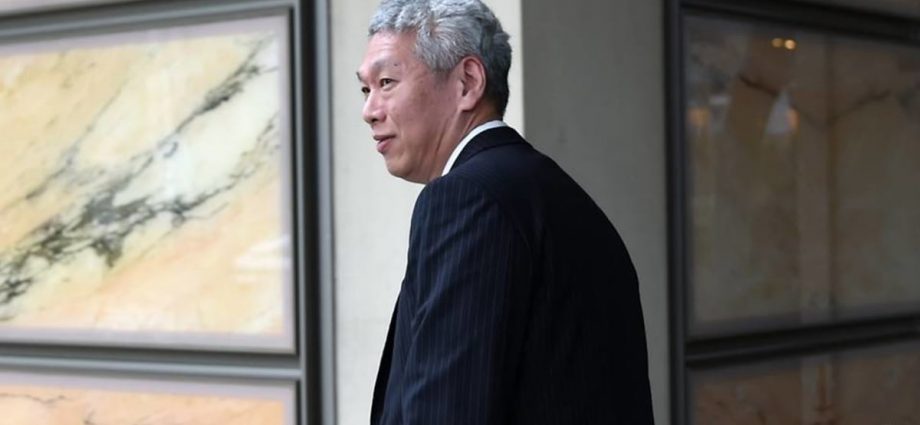
Mr Lee Hsien Yang’s comments come a day after the Government revealed that as part of their investigations, the police had requested an interview with Mr Lee and his wife, lawyer Lee Suet Fern.
Although they initially agreed to attend the interview, they later had a change of heart and refused.
In a separate statement on Thursday, the Singapore Police Force said that the couple did not turn up for a scheduled interview in July last year, and had said in an email to the police that they would not take part in the investigation.
In a Facebook post earlier on Friday, author Sudhir Thomas Vadaketh had also said that police investigations into Mr Lee Hsien Yang and his wife were “fortuitous for the PAP because it may scupper any potential run (by Mr Lee) for the presidency”.
Mr Vadaketh said in his post that Mr Lee was one of the few non-establishment figures who could meet the stringent eligibility criteria for the presidency and possibly contest against a PAP-approved candidate.
The Government had on Thursday also said that an e-book by Mr Vadaketh entitled The Battle Over Lee Kuan Yew’s Last Will contains several inaccuracies “calculated to mislead” and are “completely at odds” with court findings.
Among other things, the Government pointed out that in his book, Mr Vadaketh wrote that Mr Lee Hsien Yang and Mrs Lee Suet Fern have been “cleared of all suspicion of improper motives or manipulations vis-a-vis Lee Kuan Yew and his will”. However, the Court of Three Judges and the disciplinary tribunal said otherwise, that the couple have not been cleared of all impropriety and had lied under oath and acted dishonestly.
QUALIFICATIONS OF ELECTED PRESIDENT
According to Article 19 of the Constitution, a person is qualified to be elected as President if he is a Singapore citizen, 45 years or older and is not a member of any political party on the date of his nomination for election, among other things.
The Presidential Elections Committee determines whether a candidate fulfils the criteria.
It consists of members such as the chairman of the Public Service Commission and a person who is qualified to be or has been a Supreme Court Judge.
A potential candidate must also satisfy the committee that he or she is a person of “integrity, good character and reputation” to qualify.
It is this requirement that lawyers said would make it difficult for Mr Lee to qualify as a candidate.
In 2020, a disciplinary tribunal as well as the Court of Three Judges – the highest disciplinary body dealing with lawyers’ misconduct – found that Mr Lee and his wife had misled Mr Lee Kuan Yew in the execution of his last will.
The court and disciplinary tribunal also found that the couple had lied under oath during the proceedings.
On this, Associate Professor of Law Eugene Tan of Singapore Management University (SMU) said: “Lying on oath is a very serious matter and injurious to one’s standing, especially when one is considering running for high office.”
This will likely be Mr Lee’s “biggest hurdle” in qualifying as a candidate, said Assoc Prof Tan, even though Mr Lee should easily satisfy the eligibility criteria for private-sector candidates given his past experience as chief executive of SingTel.
Agreeing, a partner in a law firm who has over 20 years’ experience as a lawyer and who declined to be named said that it would be “very difficult” for Mr Lee to convince the Presidential Elections Committee that he is a person of good character.
Furthermore, the fact that Mr Lee is not cooperating with the authorities to assist in investigations could result in an “adverse inference” being drawn about him, the lawyer said.
This is especially so as giving false evidence in a judicial proceeding, obstruction of justice and making false allegations are very serious allegations made, the lawyer added.
Assistant Professor of Law Benjamin Ong of SMU also agreed that the Presidential Elections Committee may take the view that Mr Lee is not a “person of integrity, good character and reputation” given the findings by the Disciplinary Tribunal, even though Mr Lee has not been convicted of any offences.
Although it is possible in theory for Mr Lee to apply for a judicial review of the Disciplinary Tribunal’s findings against him, Asst Prof Ong said that it will only succeed if Mr Lee can identify a legal error committed by the tribunal in its fact-finding process.
Moreover, the Court of Three Judges has already affirmed the Disciplinary Tribunal’s finding that Mr Lee was not telling the truth when he said that he was the one who had forwarded the Draft Last Will to Mrs Lee, said Asst Prof Ong.
IMPACT OF ONGOING POLICE INVESTIGATIONS
Lawyers also told TODAY that it would be premature to say that Mr Lee has committed an offence by not assisting police investigations.
The lawyers said that under Section 21 of the Criminal Procedure Code (CPC) 2010, a police officer is empowered to issue a written order to a person within the limits of Singapore, “who appears to be acquainted with any of the facts and circumstances of the case, to attend before him”.
The person must also attend the investigation interviews by the police officer as required under the written order.
If the person fails to attend as required, the police officer may report the matter to a Magistrate, who may then issue a warrant ordering the person to attend the investigation.
It is an arrestable offence if a person who is issued a warrant does not attend the investigation interview.
However, Assoc Prof Ferlin Jayatissa of the Singapore University of Social Sciences’ School of Law said that it is not clear whether the email communication between the police and the Lee couple was framed as an order to attend, in accordance with Section 21 of the CPC.
Assoc Prof Jayatissa added that there is a possibility of warrants of arrest being issued against the couple if they failed to attend an interview as required by such a written order from the police, and this warrant of arrest may be enforced when they return to Singapore.
It would only potentially constitute an offence if either of them evade an arrest warrant, or assist another to evade such a warrant within the jurisdiction of Singapore, said Assoc Prof Jayatissa.
Agreeing, Asst Prof Ong of SMU said that Mr Lee being under investigation does not mean that he will be charged with any offence, let alone be found guilty.
He added that it is unlikely the Presidential Elections Committee will take the view that he is not a “person of integrity, good character and reputation” merely because he is under police investigation.
“That would not be fair because no formal finding has been made against him,” he said.
In response to queries on whether a written order had been issued to Mr Lee and his wife under Section 21 of the CPC and their next steps, the police referred TODAY to their statement on Thursday.
In the statement, the police said they commenced investigations following a referral in October 2021 and asked the Lee couple to assist in investigations by attending a police interview in June 2022.
When Mr Lee and Mrs Lee did not show up on the scheduled date in July 2022 and subsequently informed the police that they would not participate in the investigation, the police said they replied via email asking them to reconsider their decision.
“The police have not received any replies to our emails till date,” they said.
This story was originally published in TODAY.

